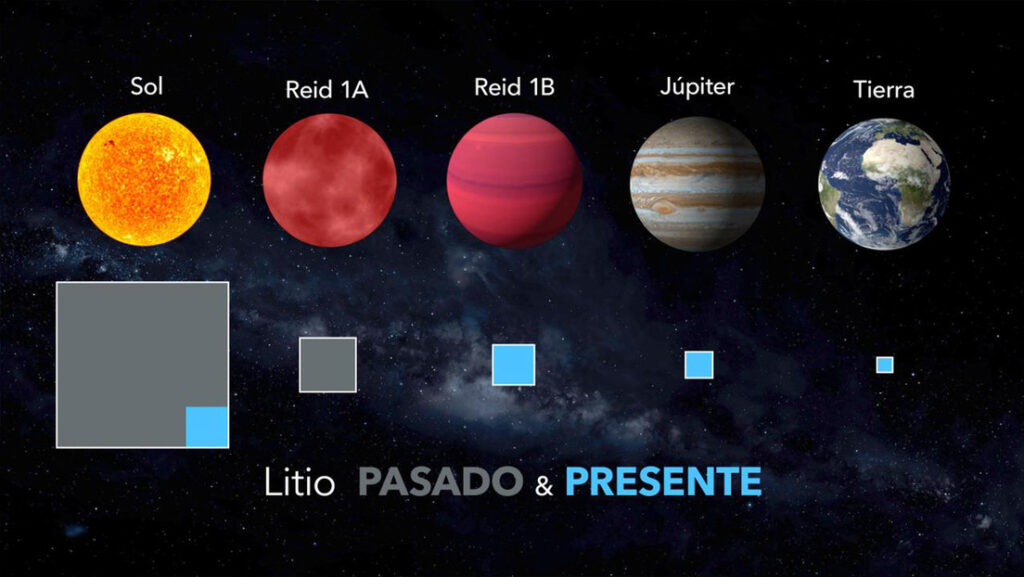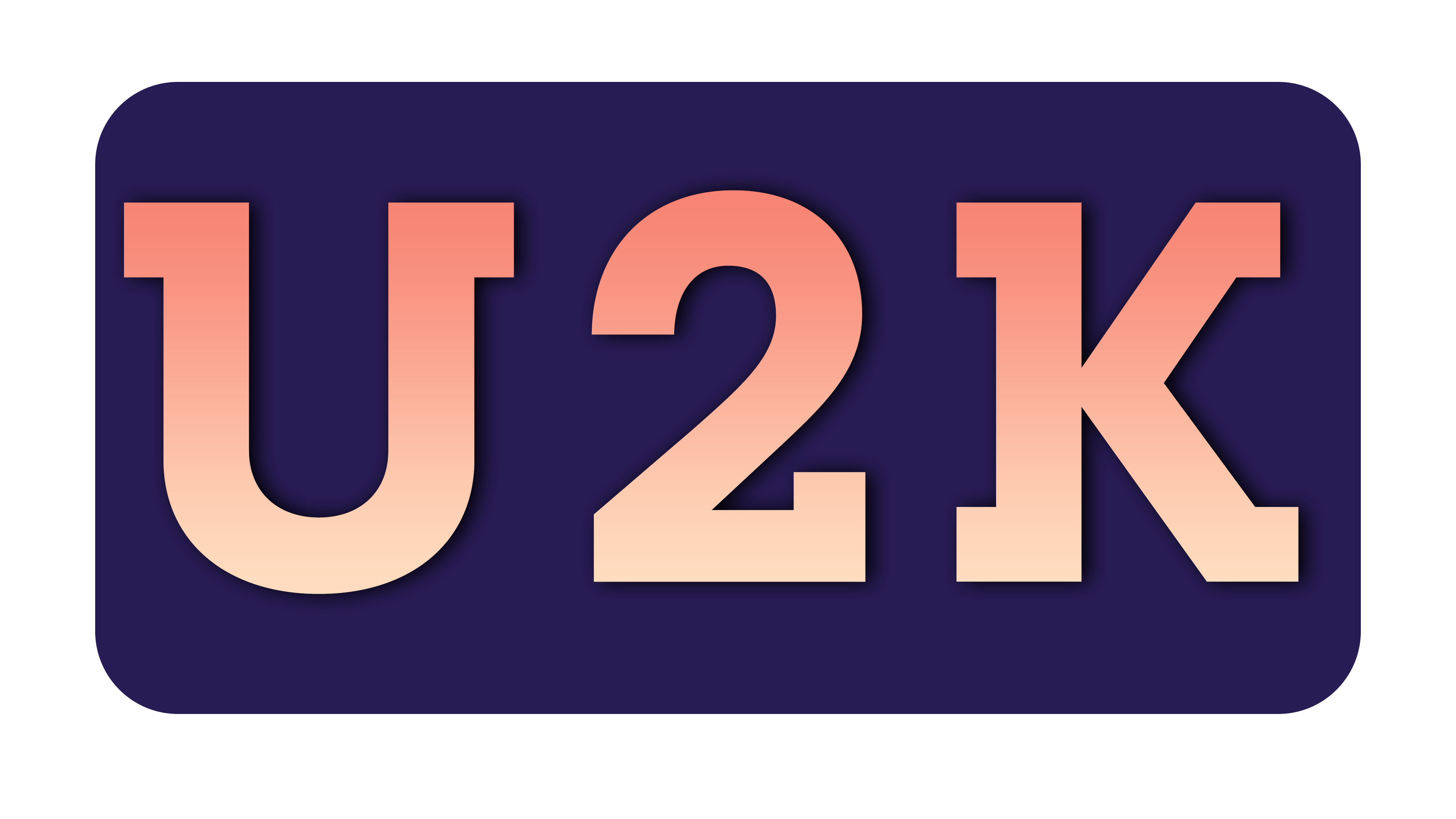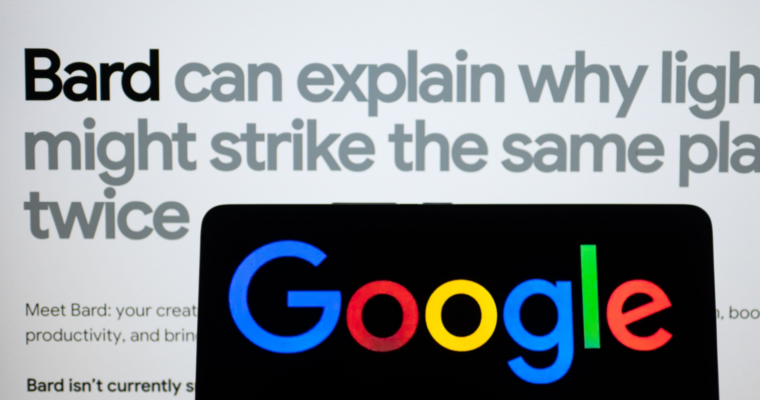
Google CEO Sundar Pichai discusses the company’s approach to AI innovation and the impact of Bard on search and web publishing.
Highlights
- Google is committed to balancing AI innovation with responsible development, addressing both the benefits and risks.
- Bard, Google’s AI project, could change search and web publishing, but Google aims to work with publishers to ensure sustainability.
- The future of search and software engineering may involve more natural language programming, making it more accessible and enjoyable for users.
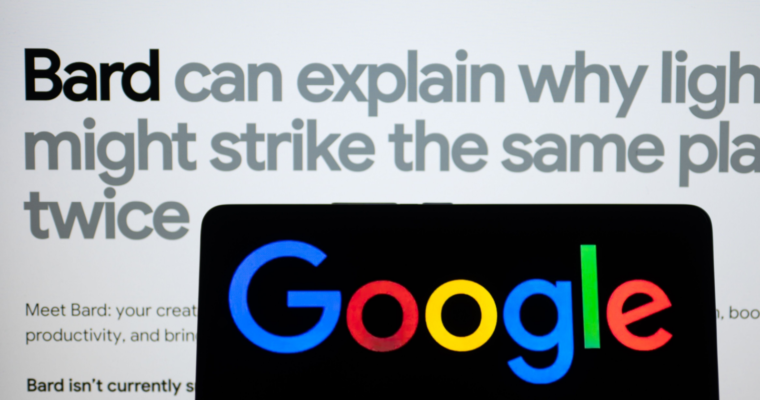
In a recent episode of the New York Times “Hard Fork” podcast, host Kevin Roose and Casey Newton sat down with Google CEO Sundar Pichai to discuss the company’s latest AI chatbot, Bard, and its potential impact on the digital landscape.
The conversation covered a range of topics, including AI safety concerns, the future of search, and the race to develop advanced AI technologies.
Launch Of Bard
Pichai shared that Bard, a lightweight version of Google’s AI model LaMDA, was released to gather user feedback and build trust.
Although the public response has been somewhat muted, Pichai assured listeners that a more capable version of Bard would be released soon.
Generative AI tools like Bard and LaMDA are envisioned to become powerful personal assistants in people’s daily lives.
Pichai recounted his own experiences with LaMDA, describing engaging and anthropomorphic conversations with the AI model.
Integration of Bard Into Gmail
Bard is being tested in Gmail with a limited number of trusted users. Pichai confirms:
“You can go crazy thinking about all the possibilities because these are very, very powerful technologies. I think, in fact, as we are speaking now, I think today some of those features in Gmail is actually rolling out now externally to trusted testers — a limited number of trusted testers.”
AI Chatbots vs. Traditional Search Queries
When asked about the differences between AI chatbots and traditional search queries, Pichai explained that the technology expands possibilities and that users will likely adjust their behavior based on what the AI models can do.
He anticipates a back-and-forth process with users to refine and improve the AI models.
The AI Race and Competitor OpenAI
Pichai acknowledged that although Google was aware of OpenAI’s progress and the team’s capabilities, the user reception of ChatGPT was surprising.
He commended OpenAI for releasing ChatGPT, as it allows society to adapt to and understand the technology.
Addressing Microsoft’s Challenge In Search
Responding to Microsoft CEO Satya Nadella’s comments about challenging Google in search, Pichai emphasized that Google has been integrating AI into search for years, intending to deliver a high-quality, trusted user experience.
Pichai states:
“I would say we’ve been incorporating AI in search for a long, long time.
When we built transformers here, one of the first use cases of Transformer was birthed, and later, MUM. So we literally took transformer models to help improve language understanding and search deeply. And it’s been one of our biggest quality events for many, many years.
And so I think we’ve been incorporating AI in search for a long time. With LLMs, there is an opportunity to more natively bring them into search in a deeper way, which we will. But search is where people come because they trust it to get information right.”
The Urgency to Innovate With LLMs & Generative AI
Pichai denied issuing a “code red” within Google.
However, he did confirm that he’s encouraging teams to move urgently and harness resources to innovate with large language models (LLMs) and generative AI.
Google’s founders, Larry Page, and Sergey Brin, remain actively involved as board members and are enthusiastic about AI’s potential.
Pichai states:
“I’m laughing, because first of all, I did not issue a code red…
To be very clear, there are people who have probably sent emails saying there is a code red. So I’m not quibbling with — all I’m saying is, did I issue a code red? No.”
Balancing Innovation & Responsibility
Addressing concerns about AI development’s risks and potential dangers, Pichai emphasized that Google aims to be bold yet responsible.
He cited Bard as an example, explaining that they have not yet connected it to their most capable models and plan to do so deliberately.
Pichai stressed the importance of finding a balance between innovation and responsibility.
AI’s Impact on Jobs & The Publisher Ecosystem
Pichai acknowledged that new technologies like AI will require societal adaptation and possible course corrections, including in the job market.
He envisions a future where AI makes programming more enjoyable and accessible, akin to how technology has democratized fields like podcasting.
Regarding the potential impact of AI chatbots on web publishers, Pichai reassured listeners that Google is committed to working with the publisher ecosystem and evolving thoughtfully in this area.
Pichai states:
“Part of the reason we are also being careful with things like Bard, amongst many reasons, we do want to engage with the publisher ecosystem, not presume how things should be done. And so you will see us thoughtfully evolve there as well.”
Future Of Google Search
Discussing the future of Google Search, it was suggested that the search bar could evolve into a more command-line-like interface for users to perform various tasks.
Pichai explained that Google aims to assist users in ways that make sense to them without becoming the ultimate solution for every interaction.
He states:
“I think I want to be careful where Google has always been about helping you the way that makes sense to you. We have never thought of ourselves as the be-all and end-all of how we want people to interact.
So while I think the possibility space is large, for me, it’s important to do it in a way in which users use a lot of things, and we want to help them do things in a way that makes sense to them.”
In Summary
The interview with Sundar Pichai offered valuable insights into the future of AI chatbots, search, and the digital landscape.
Pichai’s cautious yet ambitious approach to AI development reflects Google’s commitment to balancing rapid innovation and responsible implementation.
As large language models become more capable, Pichai emphasizes the importance of vigilance and industry-wide cooperation to ensure that AI development remains beneficial for society.
The revelation that Bard will be upgraded soon leaves us all curious about how the AI chatbot’s capabilities will evolve.
Recent Posts
- Astronomers detect first direct image of black hole expelling a powerful jet
- WhatsApp rolling out ‘reply with message’ feature within call notifications
- Multi-Device Pairing May Be Arriving for Apple Watch this Year
- Artificial Intelligence Discovers Hidden Giant, a Planet 5 Times Larger Than Jupiter
- Google CEO Sundar Pichai Talks Bard & The Future Of Search
Recent Comments

WhatsApp rolling out ‘reply with message’ feature within call notifications
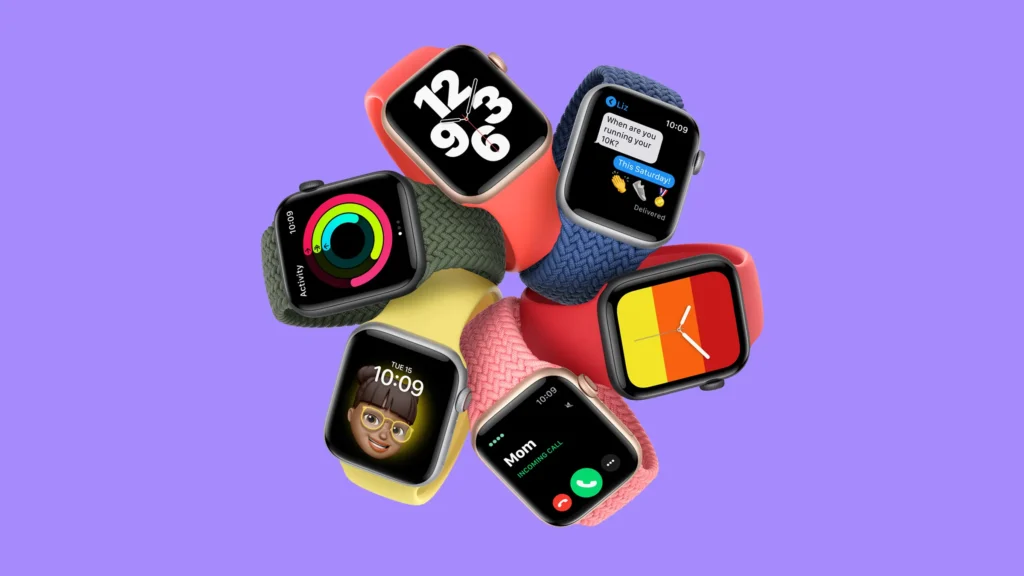
Multi-Device Pairing May Be Arriving for Apple Watch this Year

Google CEO Sundar Pichai Talks Bard & The Future Of Search
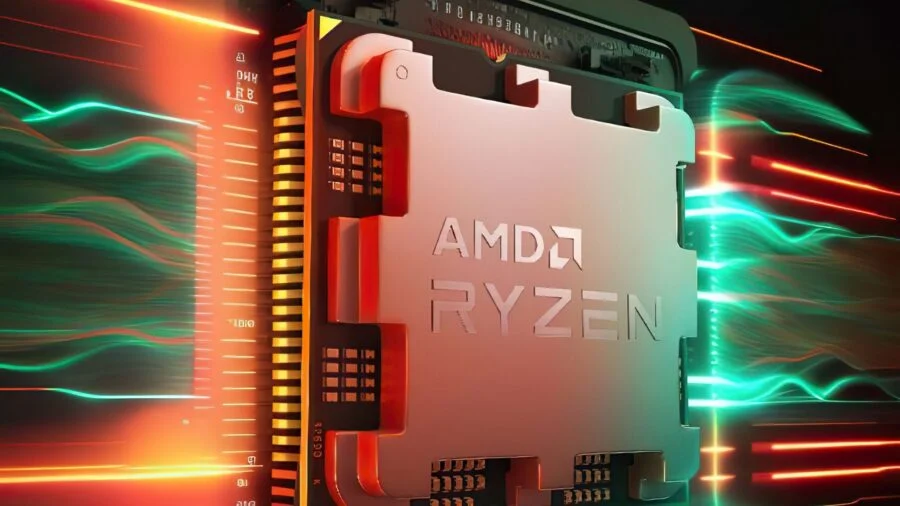
AMD assures that Ryzen 7 7800X3D is only slightly behind Ryzen 9 7950X3D in games

Astronomers detect first direct image of black hole expelling a powerful jet

WhatsApp rolling out ‘reply with message’ feature within call notifications

Multi-Device Pairing May Be Arriving for Apple Watch this Year
